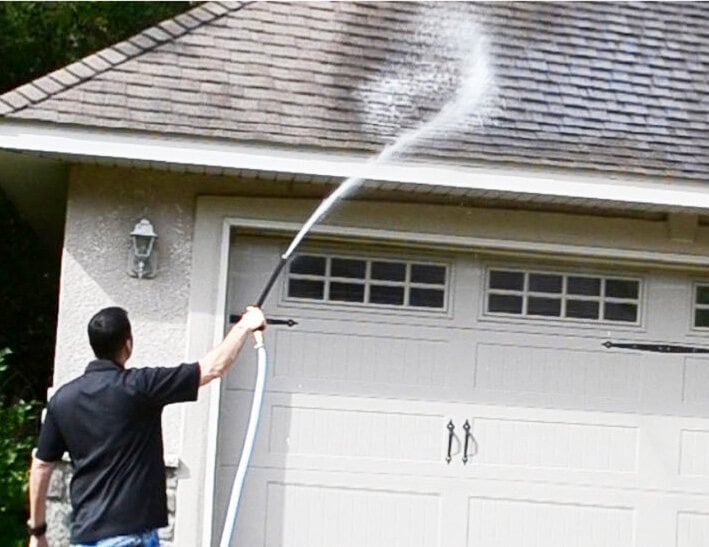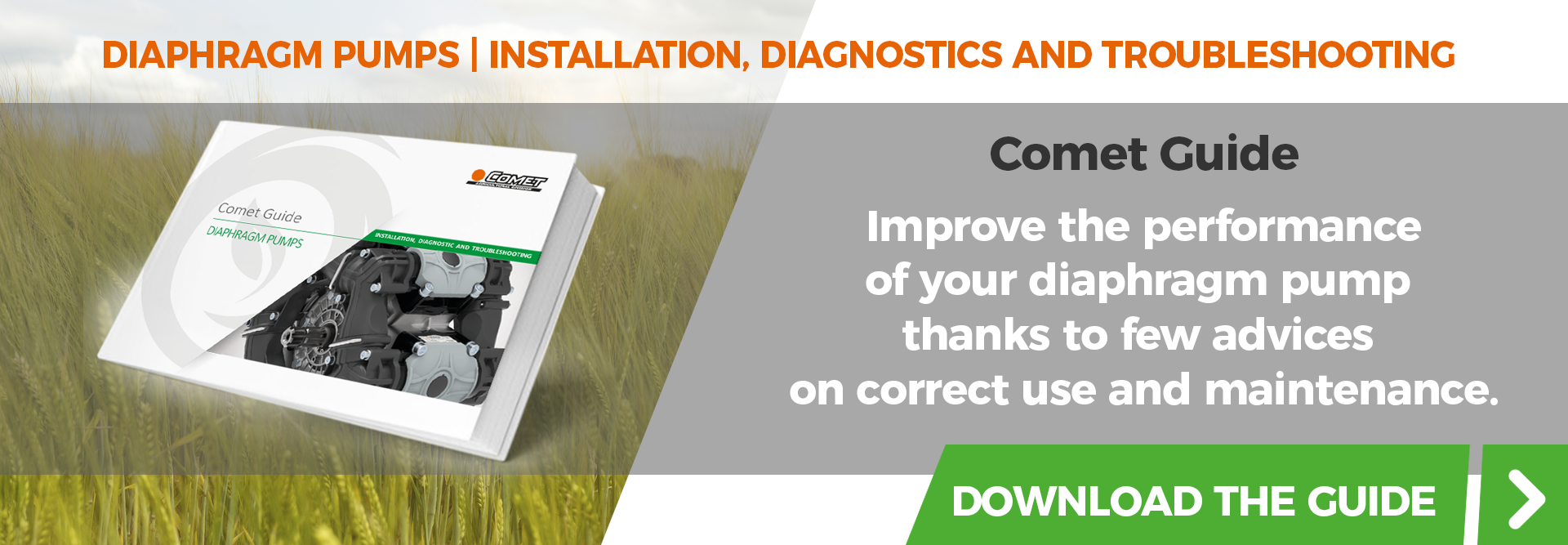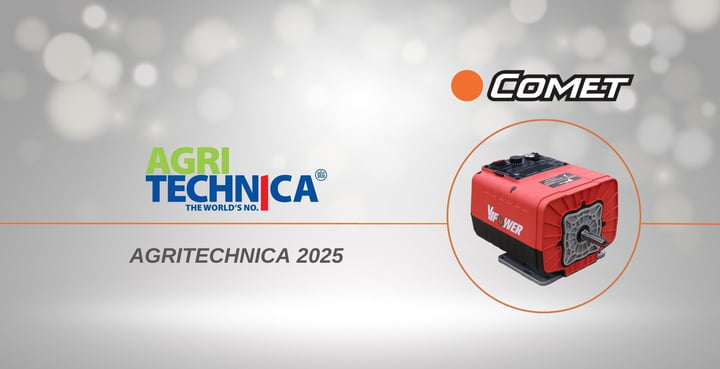Diaphragm pumps are essential tools in so many phases of agricultural work but, at the same time, they are versatile tools with many applications: among them is soft washing
In this article, therefore, we will find out what their features are, what they are used for and which diaphragm pumps are best suited for this special cleaning method.
THE HIGH-PRESSURE WASHING
One of the best cleaning methods, both home and professional, is high-pressure washing. In fact, pressure washers are the best machines to wash both objects and surfaces in an easy and efficient manner because of the pressurized water jet that is produced by high-pressure pumps.
DISCOVER COMET PRESSURE WASHERS
The pump, in fact, is the core of a pressure washer: this is the component that allows water to reach a pressure of up to 500 bar, capable of disintegrating and removing dirt accumulated on objects, floors and vertical surfaces in just one go and without having to operate mechanically or resort to chemical additives or detergents.
This type of washing is used not only in the home but also in any professional sector; however, there are some exceptions related to the construction field.
THE DIFFERENCE BETWEEN HIGH-PRESSURE WASHING AND SOFT WASHING
In special cases, in fact, the excessive pressure exerted by the pressurized water jet may be too strong for some materials. Although professional pressure washers allow adjusting the flow rate and pressure generated, in some cases you have to resort to soft washing.
In the construction field, for example, pressure washers are perfect to remove general dirt or mold, algae, pollen and moss from stone, rough concrete or granite. On plastered surfaces, however, they can cause scratching, chipping and uneven finishes. That is why soft washing is generally more suitable on modern plasters.
Soft washing, in fact, can be considered a derivative of the high-pressure washing system but is based on low pressure (less than 30 bar), high temperature and the combined action of water with soaps and detergents such as sodium hypochlorite.
WHEN USING SOFT WASHING
This specific cleaning can be applied to a wide variety of outdoor surfaces:
- Roofs
- Coatings
- Stone surfaces
- Acrylic or silicone plasters
- Wood surfaces
- Bricks
- Driveways
- Sidewalks
- Fences
Therefore, thanks to soft washing, the following substances can be removed without damage, even from the most delicate surfaces:
- Algae
- Moss
- Fungi
- Molds
- Atmospheric residues
- Drainage from gutters
- Miscellaneous impurities
In particular cases, soft washing contributes to maintenance far beyond aesthetic cleaning. On roofs, for example, moss buildup, leaf accumulation or bird guano can clog downspout drains and cause stains, which consequently lead to harmful drains, stains and seepage.
Soft washing, rather than using the more powerful pressure washer, results in effective cleaning of roofs while avoiding displacement of tiles due to the force of the pressurized water jet. Equally effective is soft washing when cleaning brick walls, which are particularly delicate to hydro-cleaning because masonry tends to loosen when stressed by high-pressure jetting: soft wash, on the other hand, avoids damaging surfaces and does not cause cracking or loosening of bricks.
It is the plaster, however, that most enhances the efficiency of soft wash: modern plasters, in fact, being porous, greatly suffer from the attack of impurities and organic formations such as algae and moss. The delicacy of the material, however, is ill matched by the force of high pressure, while soft wash - combined with the chemical action of the detergents used - gently breaks down dirt while preserving its integrity. In addition, the use of biocidal compounds makes it possible to prevent the new formation of organic impurities, decreasing the frequency of intervention.
A final example of the application of soft wash is in roads and high-traffic public areas: the combination of high-temperature water and steam, in fact, allows sanitization and disinfection.
WHICH PUMPS ARE USED FOR SOFT WASH
The systems used for soft washing are based on chemical-resistant low-pressure pumps, which are suitable for the use of solutions such as sodium hypochlorite.
These are positive displacement diaphragm pumps that take advantage of alternating changes in the volume of a pumping chamber to generate pressure imbalances between the chamber itself and contiguous spaces. The expansion and contraction of the pumping chamber are generated by means of the oscillations of an elastic diaphragm, the one that gives the pump its name.
READ MORE: DIAPHRAGM PUMPS: WHAT THEY ARE AND HOW THEY WORK
As mentioned, pumps that have parts in contact with the solutions to be sprayed (such as heads and manifolds) composed of plastic materials and particularly resistant to corrosion are recommended for soft wash.
Precisely for this reason, the ideal Comet pumps for this type of application are diaphragm pumps with liquid-contacting polypropylene
In fact, polypropylene is a plastic material that is highly resistant to the chemicals usually used for soft wash, chief among them sodium hypochlorite. Another feature that contributes to making these pumps unassailable to chemicals is the standard use of Viton® diaphragms (except on BPX 25, where they are still available upon request), one of the materials most renowned for its very high resistance to corrosive substances.
















